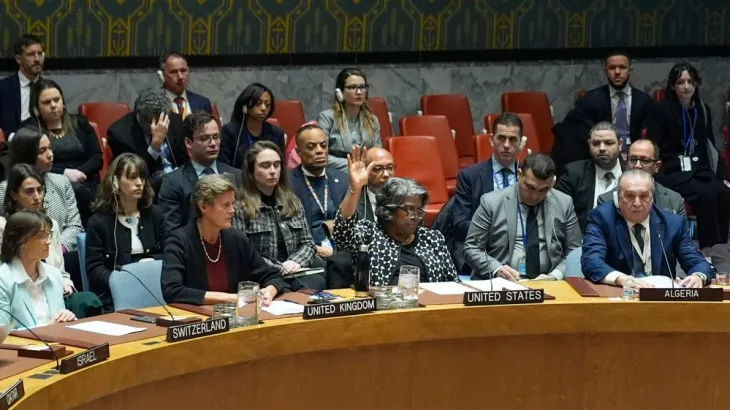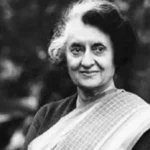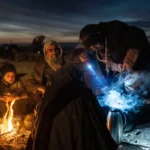Soon after the end of the bloodiest war in history, World War II, which had profoundly shaken the world for almost 6 years, the League of Nations was dissolved because it failed in its primary responsibility of preventing any future global war. The United Nations was created on October 24, 1945, with a strong vision of promoting international peace as well as cooperation in economic, social, and humanitarian issues.
The UN Security Council, a key component of the United Nations, has a major role in decision-making. It consists of 15 members including the five permanent members (P5) nations: China, France, Russia, the United Kingdom, and the United States. There are also 10 non-permanent members who are elected for 2 years by the UN General Assembly.
The most essential, but also controversial, aspect of the Security Council’s decision-making process is the veto power held by its five permanent members. Article 27 of the UN Charter grants these P5 nations the power to block any resolution, regardless of its level of support from other members.
This veto power has always been a subject of debate and criticism, as it raises many questions regarding its role in promoting peace versus serving as a tool for promoting the national interest of these P5 nations. While some scholars argue that the veto power is a deterrent to conflict, by allowing the nations to prevent resolutions that may lead to unnecessary conflicts, others see it as a tool for protecting the national interests of veto powers and exerting influence on developing nations.
The historical use of UN veto power in resolutions has demonstrated its potential to serve as a tool of national interests. For example, on 26 February 2022, Russia vetoed a UN Security Council resolution that demanded Moscow to immediately stop its attack on Ukraine and withdraw its troops. If we look at the scenario in this example, Russia used its Veto power to block the resolution because it was against its national interest as the Ukraine bid for NATO membership was a threat to Russian national security.
Furthermore, UN veto power has been mostly used by the P5 states to block many resolutions on a wide range of issues, but most probably to protect their allies or defend themselves from international humiliation.
For instance, three times, the United States has exercised its veto power to block United Nations Security Council (UNSC) resolutions intended to establish a ceasefire in the war-torn Gaza, to protect its ally Israel, and promote its national interest in the region despite its level of support from other nations. Even the International Court of Justice has ruled that there are some evidences of genocide committed by the Israeli forces, but still, the US is blocking resolutions to protect its allies and their national interest.
So, if the purpose behind the creation of the UN was to promote international peace, then why are the P5 using their power to protect their national interests? Why do the ideas of Non-permanent members seem to have no value? These are questions on everyone’s mind.
Whenever there is a dispute there is a solution, but it depends on the person – do they really want to resolve the dispute or not? So, what can be done to avoid the use of veto for the purpose of national interest rather than international peace?
Possible Solutions:
- Limited Veto: The veto power could be limited to specific issues, such as direct military intervention, to prevent its overuse for national interests.
- Complete Abolishment (with limitations): A more radical approach would be the complete abolishment of the veto power, at least for cases involving genocide or war crimes. This aligns with Article 1 of the Geneva Convention, which states that “genocide, whether committed in time of peace or in war, is a crime under international law which they undertake to prevent and to punish.” However, complete abolishment might be unrealistic. A compromise solution could be to remove veto power in cases with overwhelming international condemnation.
The United Nations adopted a very important resolution known as the “Uniting for Peace” resolution 377A which states that “in any cases where the Security Council, because of a lack of unanimity among its five permanent members (P5), fails to act as required to maintain international security and peace, the General Assembly shall consider the matter immediately and may issue appropriate recommendations to UN members for collective measures, including the use of armed force when necessary, in order to maintain or restore international security and peace.”
The resolution itself is a positive step, but its implementation has been a challenge. It has failed to stop conflicts like the one in Gaza or Ukraine. The UN General Assembly should emphasize stricter enforcement of this resolution to prevent further escalation of conflicts.
Also Read: A Tale of Two Conflicts: Unmasking the Western Hypocrisy in Ukraine & Gaza
The pursuit of international peace, the cornerstone of the United Nations, demands a united front. Member states must prioritize collective security over individual interests. The UN cannot function as a platform for powerful nations to legitimize their aggression and silence the voices of weaker states.
To truly embody the spirit of its founding, the UN may need to consider restructuring the Security Council, particularly regarding the veto power held by the P5. Millions around the world yearn not just for humanitarian aid, but for lasting peace – a goal perpetually jeopardized when a single nation dictates the course of action. The UN must evolve to effectively address the challenges of the 21st century and usher in an era of genuine global cooperation.
The views expressed in this article are the author’s own. They do not necessarily reflect the editorial policy of the South Asia Times.
Muhammad Mudassir is a student of Bachelors of Science in Defence and Strategic Studies at Quaid-I-Azam University Islamabad. His interests lie in defense, strategic studies, and international affairs, and he actively engages in writing on these topics. He can be reached on X @Mr_khattak2004)





Excellent sir…